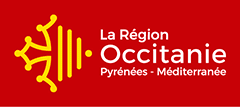The new Arthur Loyd 2022 Barometer ranks Montpellier in top position among the most attractive and resilient large metropolitan areas in France. At the same time, Toulouse rose again to reach second place in its category.

A driving territory for the economy’s green transformation
In 2021, the Hérault department attracted 770 million euros in capital supporting the climate transition. This amount ranks the department in second place in France, just after the Nord (North). The department benefits from at least 11 projects, including Urbasolar, specialized in solar energy farms.GENVIA, a large project for hydrogen decarbonization led by CEA, Schlumberger New Energy, Vinci Construction, and the Occitanie Region will end up in Béziers, notably thanks to the mobilization of elected officials and local authorities. The project represents a strategic challenge for France: a giga-capable production site by 2030, with 500 direct jobs and an ecosystem (EDEN) related to green hydrogen. Other industrial projects involving the energy transition are currently looking for property solutions.“The Mediterranean climate and our geographical location gives the Occitanie-Méditerranée territory major benefits for becoming one of the leaders in France and Europe in sustainable development, notably for windmill, solar, and hydraulic energy production,” notes Michel Peinado, Associate Director for Arthur Loyd Occitanie Méditerranée, while also placing a cautionary note on the barriers encountered: “While Montpellier’s tertiary offering can easily meet the needs of business stakeholders, that is not necessarily the case for supporting industrial projects. Not only have we observed a deficit in terms of available facilities, but there is a real lack of immediately accessible real estate to welcome major structural projects for production.”
“Without specific assistance from local authorities, especially with respect to simplifying administrative requirements by Government bodies to make property available, it will not be possible to pursue these projects in our territory,” warned Michel Peinado.
The Occitanie region, driving the French economy
According to the Arthur Loyd 2022 Barometer, Occitanie actually became stronger during the Covid period, now ranking as the third leading region in France with respect to private job growth since Q4 of 2019.After having been the regional metropolis that suffered the most from the economic impact caused by the Covid-19 crisis (10,792 jobs disappeared), Toulouse created 16,386 jobs in 2021. The rebound is spectacular, contributing to its second-place ranking among France’s very large metropolises.
This trend is confirmed through investments in climate transition sectors, such as renewable energy, waste recycling, green hydrogen, batteries, electric vehicles, and more. A sign of the area’s vitality, it is noted that Occitanie has clear advantages when it comes to renewable energies, and is notably ranked as the second leading region in terms of investment made in climate transition industries. Companies invested 1.4 billion euros in 2021 for projects related to the economy’s decarbonization, and 1 billion in the first half of 2022.




